[Big read] Taiwan’s risky gamble: Relying on US protection while divided at home
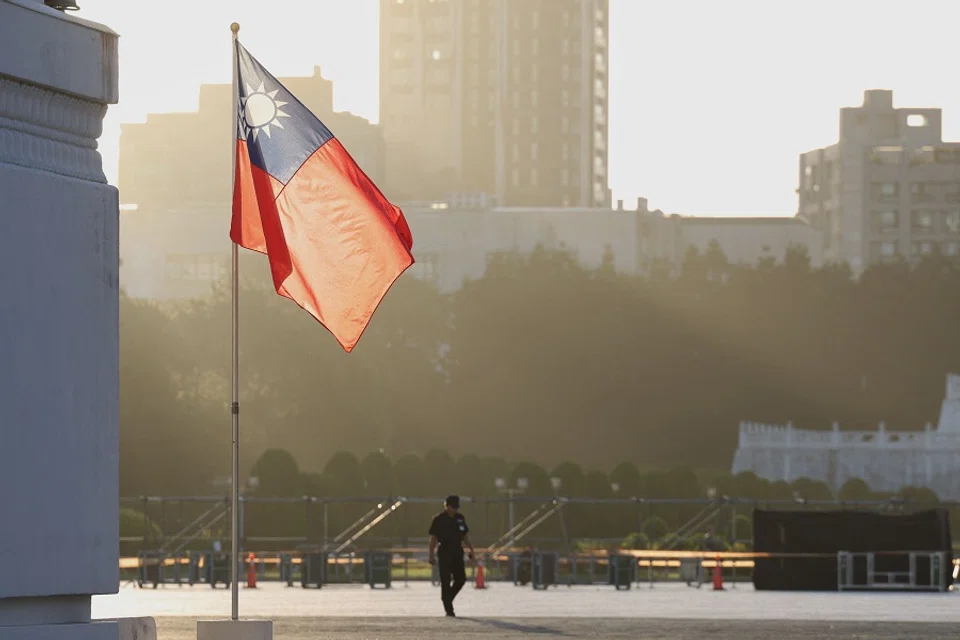
Alongside the Taiwan public’s waning confidence in the US, there are several signs that portend the US would not intervene if mainland China invades Taiwan. Lianhe Zaobao journalist Miao Zong-Han discusses the issue.
Last month, as US President Donald Trump celebrated his 100th day in office and China-US relations reached a new low because of the trade war, the spotlight shifted to the Taiwan Strait.
This geopolitical hotspot in the China-US face off has been described as “the most dangerous place on earth” by The Economist in 2021. Just a few weeks ago, the publication once again warned in a cover story that “A superpower crunch over Taiwan is coming”.
President Lai’s intensifying rhetoric
According to the article, matters in the Taiwan Strait are coming to a head as Beijing continues to pressure Taiwan through military and other “grey zone” tactics and the US loses its power of deterrence. Trump may choose to let Taiwan fall into mainland China’s sphere of influence in order to avoid a nuclear showdown with China, or he might even reach an agreement with Beijing that would amount to abandoning Taiwan, further rocking the strategic balance and the democratic line of defence in Asia Pacific.
The analysis was taken by many Taiwanese media outlets as a warning that the US has abandoned Taiwan.
Meanwhile, a Foreign Policy article published on 1 May titled “Trump Should Rein in Taiwan” by Christopher S. Chivvis and Stephen Wertheim, senior fellows of the American Statecraft Program at the Carnegie Endowment for International Peace, blames Taiwan President Lai Ching-te for adding to tensions by continuing to emphasise Taiwan’s independence since taking office, a move that was effective in boosting support for his presidency but also increased the risk of military action by Beijing.
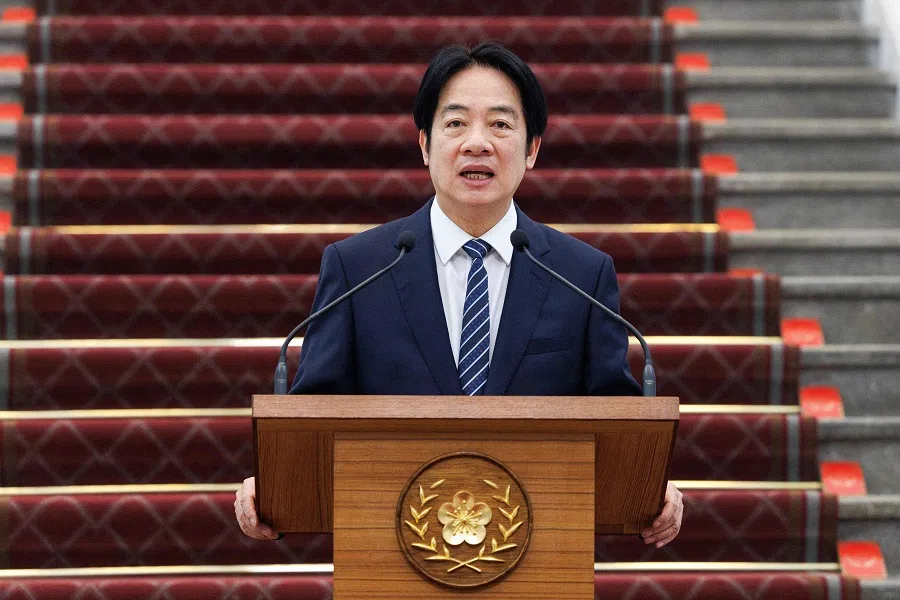
The article suggested that Trump should do what former US President George W Bush did, urge Taiwan to exercise restraint in order to maintain stability in the Taiwan Strait, and avoid getting the US embroiled in another war.
Since entering office last year, Lai has upheld the rhetoric of his predecessor Tsai Ing-Wen, advocating that “the Republic of China and the People’s Republic of China are not subordinate to each other”. In March this year, Lai also characterised China as a “foreign hostile force” under Taiwan’s Anti-Infiltration Act, and issued 17 strategies to deal with threats to national security and China’s unification campaign. Beijing made its strong dissatisfaction known, and held another round of military drills around Taiwan in April.
He [Lai] also said that more than 60 people — including veteran soldiers — were charged with collusion last year, and several organisations were categorised as collaborators, with the situation worsening.
In an interview with Taiwan’s Wealth Magazine published on 7 May, Lai stressed that he would not have taken such a position had his hand not been forced. He said that mainland China has continued to threaten Taiwan with military force and step up infiltration for its unification campaign in recent years, leading to a surge in the number of cases of Communist collusion. He also said that more than 60 people — including veteran soldiers — were charged with collusion last year, and several organisations were categorised as collaborators, with the situation worsening.
At the Victory in Europe Day tea event commemorating the 80th anniversary of the end of World War II in Europe on 8 May, Lai stressed once again that “those who cherish peace cannot sit idly by and allow aggression”, and remarked that Taiwan and Europe are currently facing similar challenges in the expansion of a new authoritarian bloc.
He urged, “Lovers of freedom around the world, both individuals and nations, must work together now in tight solidarity, before risks turn into crises and before crises are taken advantage of by those with ambitions for outward expansion, to make sure that aggressors have not opportunity to advance on their ambitions.”
Taiwan’s plunging confidence towards the US
However, China and the US remain in deadlock, the situation across the Taiwan Strait continues to heat up, and more noise on the US abandoning Taiwan is being heard. Since late April, three public opinion polls in Taiwan have shown that trust in the US and confidence in its commitment to protecting Taiwan has significantly decreased.
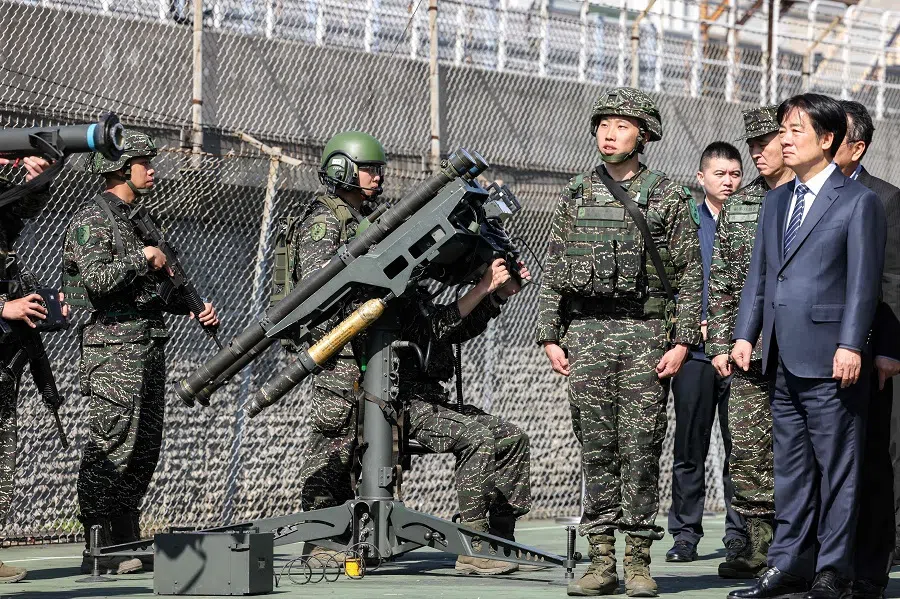
American think tank Brookings Institution published the findings of a public opinion poll on 25 April, observing that the proportion of the Taiwanese populace who saw the US positively had declined from 54.3% in July last year to 33.5%. A poll conducted by Taiwan’s military think tank Institute for National Defense and Security Research also showed that only 14% of respondents believed that the US would definitely intervene militarily in the Taiwan Strait.
Findings from the “American Portrait Survey”, conducted by Taiwan research institution Academia Sinica showed that only 33.4% of the population thought the US was trustworthy — the lowest figure ever recorded; and around 60% of the public polled were worried that China and the US would reach an agreement that would be damaging to Taiwan’s interests.
At a forum to discuss the poll results on 2 May, Professor Wu Wen-Chin, a research fellow at the Institute of Political Science at Academia Sinica, who was part of the project, candidly revealed that overall, the Taiwanese public is pessimistic about Trump’s new government.
A commonly held viewpoint was that the Taiwan public’s trust in the US had fallen significantly due to Trump’s unfriendly attitude towards Taiwan during his second term.
In addition to policies that appear to be unfriendly towards Taiwan, the Trump administration has also yet to appoint a chairman to the American Institute in Taiwan. These signs all seem to indicate that Taiwan is not on Trump’s list of priorities.
Since being elected in November last year, Trump had remained non-committal on whether the US will defend Taiwan from attack. At Trump’s first cabinet meeting in February this year, in response to a question about whether Beijing would attack Taiwan during his presidency, he emphasised that he had never commented on the matter and will not start, “because I don’t want to ever put myself in that position.”
In addition to policies that appear to be unfriendly towards Taiwan, the Trump administration has also yet to appoint a chairman to the American Institute in Taiwan. These signs all seem to indicate that Taiwan is not on Trump’s list of priorities.
New Taiwan-related bills
Compared with Trump, the US Congress’s and the Department of State’s position on Taiwan do not appear to be too different from that of the Biden administration.
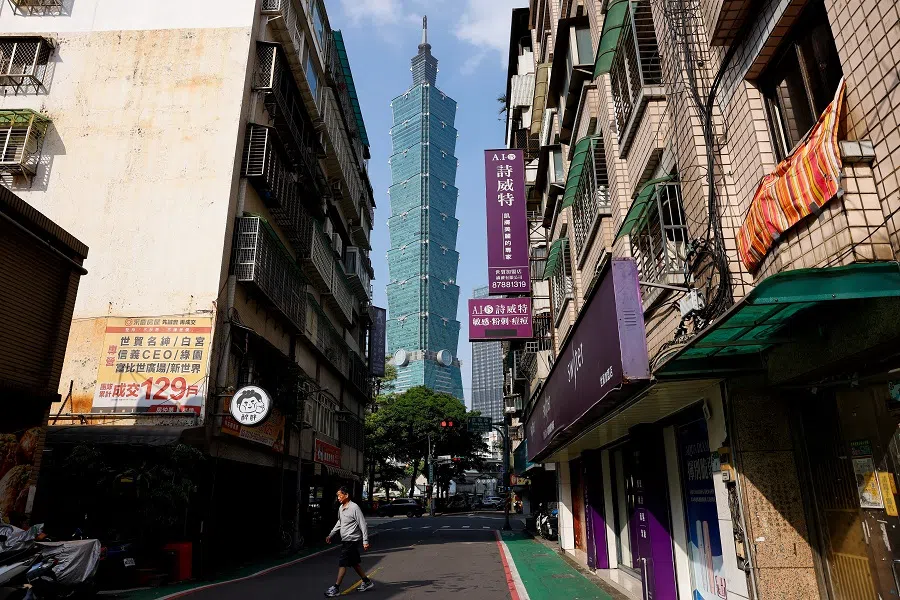
For example, at the 23 April United Nations (UN) Security Council meeting, the US criticised China for the first time, for the “misuse of UN General Assembly Resolution 2758 in its attempts to isolate Taiwan, mischaracterise other countries’ policies, and constrain their choices”.
On 5 May, the US House of Representatives also unanimously passed The Taiwan Assurance Implementation Act and the Taiwan International Solidarity Act.
The former authorises the US Department of State to conduct periodic reviews of its engagement with Taiwan and articulate plans to lift any self-imposed restrictions. It is seen as an enhanced version of the Taiwan Assurance Act of 2020. The latter states that the UN General Assembly Resolution 2758 does not address the issue of representation of Taiwan and its people in the UN or related organisations, and calls on the US to use its influence and voice to resist Beijing’s claims on Taiwan-related resolutions in international organisations.
But the bill still has to be passed by the House of Representatives and the Senate in a final version both agree with, and signed off by the president, before it can come into force.
Still, with Trump holding sway over policies and prone to sudden about-turns, the Congress’s and the Department of State’s Taiwan-friendly stance might not be indicative of Trump’s intentions. And Trump’s true attitude towards Taiwan would still be the key decider on US-Taiwan relations and even the situation in the Taiwan Strait.
Taiwan an important chess piece for Trump
Responding to a question raised by Lianhe Zaobao during the 2 May symposium on “The First 100 Days of Trump 2.0: Challenges and Prospects”, Yu-Shan Wu, academician of the Academia Sinica, remarked that for Trump, Taiwan is a very important chess piece.
In his analysis, Trump would exercise caution in playing the Taiwan card, “Would he abandon Taiwan? I feel that Taiwan is a very important chess piece, and he would never turn his back lightly,” Wu said.
The dangers of a proxy war were indeed an issue Taiwan needed to handle with caution. — Professor Wu Jieh-min, Research Fellow, Academia Sinica
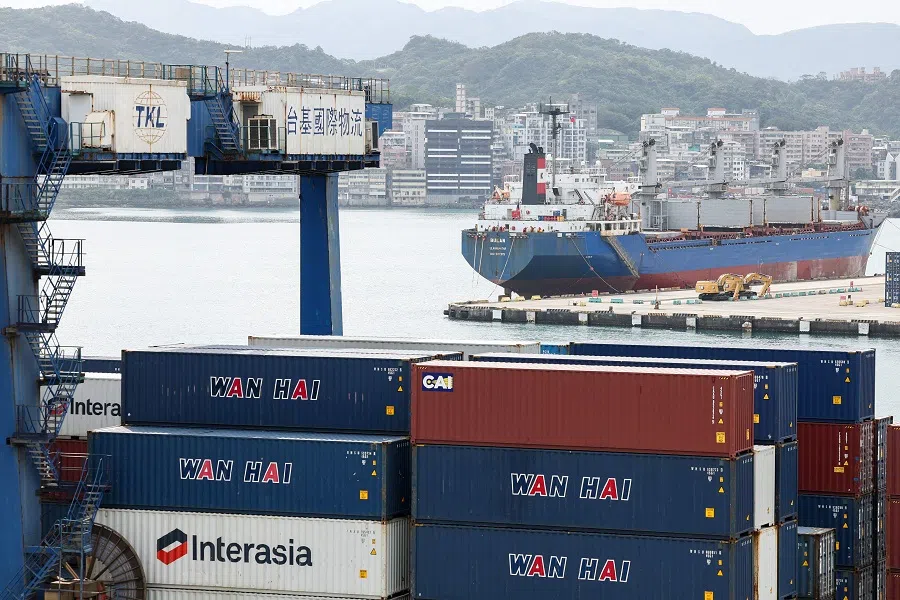
He added, “However, would he just keep it in focus and protect it with all his might? Of course not, because Taiwan is just a pawn.”
Wu also said that based on what happened during the Cold War between the Soviet Union and the US, two nuclear superpowers would avoid direct confrontation, choosing instead to engage in proxy wars — like with the Korean War, the Vietnam War and the Afghan War — to weaken each other. So if the situation in the Taiwan Strait comes to a head, whether the US gets directly involved will have very significant strategic implications for Taiwan.
Triggers for a proxy war
Responding to a question at the symposium, Wu Jieh-min, research fellow and professor at the Academia Sinica, agreed with Yu-Shan Wu’s analysis, observing that the dangers of a proxy war were indeed an issue Taiwan needed to handle with caution.
But he believes that the risks of a proxy war would not fall solely on Taiwan but on the entire West Pacific region. He said, “If you take this view, tension in the South China Sea is also quite high, and the same goes for the East China Sea,” Wu said.
“That’s why there’s a saying that if Taiwan is in trouble, Japan would be in trouble — this is how the whole region is connected,” he stated.
Wu also pointed out that both China and the US would be cautious in their consideration of both war-preparedness and deterrence.
The proposal stresses the importance of continuing to decouple from mainland China, and leveraging Taiwan’s strengths in high-tech manufacturing to gain a foothold in Europe and the US, Japan and other countries in the “global north”. — Wu’s plan approved by Taiwan President Lai Ching-te
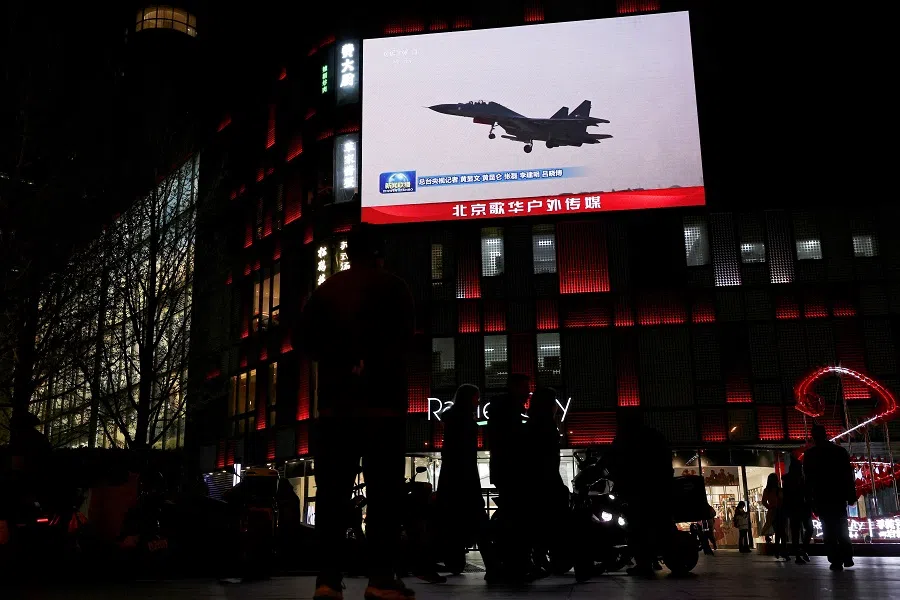
After Trump announced a barrage of tariffs, Wu, who is also a consultant for the department of Chinese affairs at the Democratic Progressive Party (DPP) and the New Frontier Foundation think tank, was the first to propose the strategy of “leave China, go north” on 6 April. The proposal stresses the importance of continuing to decouple from mainland China, and leveraging Taiwan’s strengths in high-tech manufacturing to gain a foothold in Europe and the US, Japan and other countries in the “global north”.
Following that, at a DPP Standing Committee meeting, Wu was invited to present a special report titled “Liberation Day Tariffs: Discussion on Solutions and Plans”, where his proposed strategy of leaving China and heading north gained the approval of Lai Ching-te.
External demands and internal politicking
Taiwan is a semiconductor manufacturing hub and has a long-running trade surplus with the US. Because of this, Trump has accused Taiwan of stealing business from the US several times since last year’s elections.
Despite the fact that CC Wei, chairman of Taiwan Semiconductor Manufacturing Co. (TSMC), had met with Trump in the White House on 3 March and made a joint announcement that the company would be increasing its investment in the US by at least US$100 billion in the next few years, Taiwan was still slapped with a 32% tariff a month later when the president announced reciprocal tariffs.
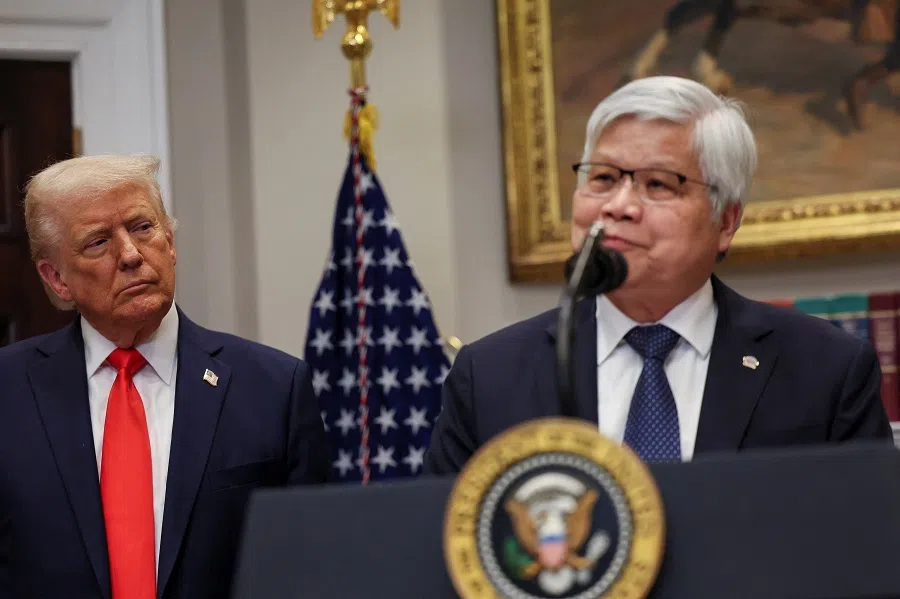
In addition, Trump has repeatedly stressed that Taiwan’s defence spending is insufficient and should be increased to 10% of its GDP.
Meanwhile, all signs are pointing to the US demanding more of Taiwan in Trump’s second term.
Taiwan should do as Germany and Israel and understand that “Taiwan’s defence is Taiwan’s business”, and while the US will provide assistance, Taiwan needs to show its resolve and capability to defend itself. — Kenneth R Weinstein, former Director, Hudson Institute
Speaking at the National Taiwan University in late April, Kenneth R Weinstein, former director of Hudson Institute, a conservative US think tank, said that the Trump administration is no longer willing to underwrite the defence and security expenditure of foreign countries; defence expenditures in Europe have also increased significantly. Most notably, the new German government has increased its defence budget.
He said Taiwan should do as Germany and Israel and understand that “Taiwan’s defence is Taiwan’s business”, and while the US will provide assistance, Taiwan needs to show its resolve and capability to defend itself.
During his first term, Trump’s instinct was that Taiwan was not doing enough to protect itself, Weinstein stressed, and if Taiwan now hesitates, retreats or appears afraid, it would only add to Trump’s existing impression.
Weinstein suggested that the Taiwanese government come up with a bold, pragmatic, detailed plan that addresses US concerns — taking the same tack TSMC did when it announced its plans to expand investments in the US. He also suggested that Taiwan could discuss a new arms deal with the US, or even join the liquefied natural gas (LNG) development plan in Alaska.
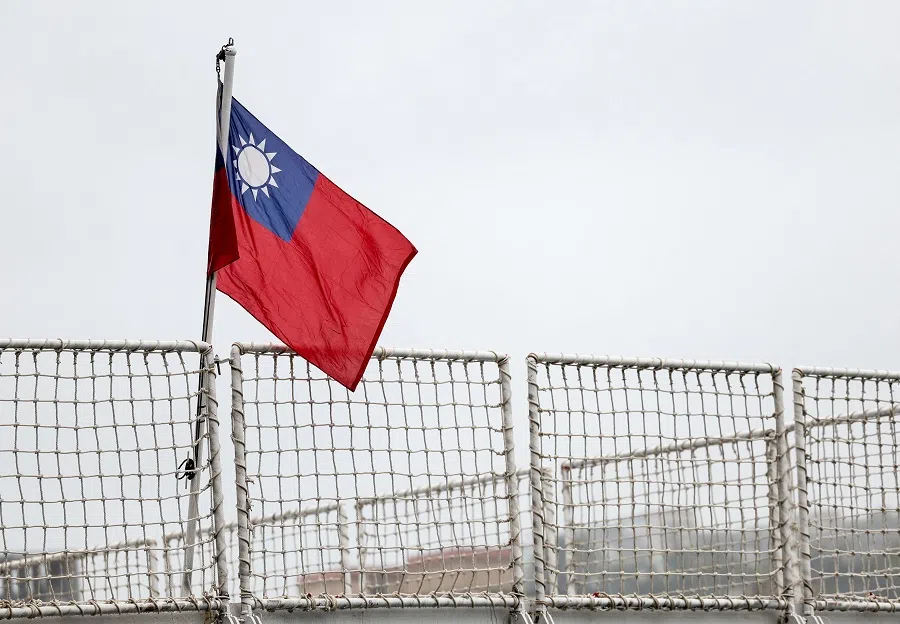
On top of the external uncertainties brought about by Trump, Taiwan is also having to grapple with an increasingly deadlocked political situation at home. The DPP administration is governing with a minority, and plans to raise the defence budget have been blocked by the opposition camp, which has in turn worsened US concerns. The recalling of KMT legislators from the Legislative Yuan issued by Ker Chien-Ming, the DPP caucus leader, has further intensified the political situation in Taiwan.
The above-mentioned article from The Economist said that the chronic dysfunction in Taiwan’s politics has become one of the weaknesses mainland China is looking to exploit in its grey-zone tactics, and Lai Ching-te’s tough crackdown on Chinese infiltration is worsening social division, providing an opportunity for Beijing.
Beijing might wait until January 2029 to take further invasive action against Taiwan after the end of Trump’s term. — Associate Professor Dennis Weng, Department of Political Science, Sam Houston State University
Not yet time for a showdown
In an article, US-based Taiwanese academic Dennis Weng, associate professor in the department of political science at Sam Houston State University, pointed out that Taiwan’s biggest problem was not military weaknesses, but internal divisions. When the Taiwanese society is caught up in confrontation and performance politics, lacking a sustainable consensus on defence and crisis preparedness, the Taiwan strategy of both China and the US will give even less consideration to Taiwan’s interests.
But Weng also added that for Beijing, the time for a showdown is yet to arrive. In spite of Trump’s unwillingness to become embroiled in another war, his capriciousness and disregard for international structures remain a big risk, and Beijing is wary of this volatile variable.
In his analysis, Beijing might wait until January 2029 to take further invasive action against Taiwan after the end of Trump’s term, as this is when international pressure would be diminished and the US weakened — translating into lower risks and lower costs for invasion. This would then be when Taiwan plunges into a situation with no holds barred.
This article was first published in Lianhe Zaobao as “中美战略对峙下 特朗普2.0肆意出牌 台湾成待价而沽筹码”.





